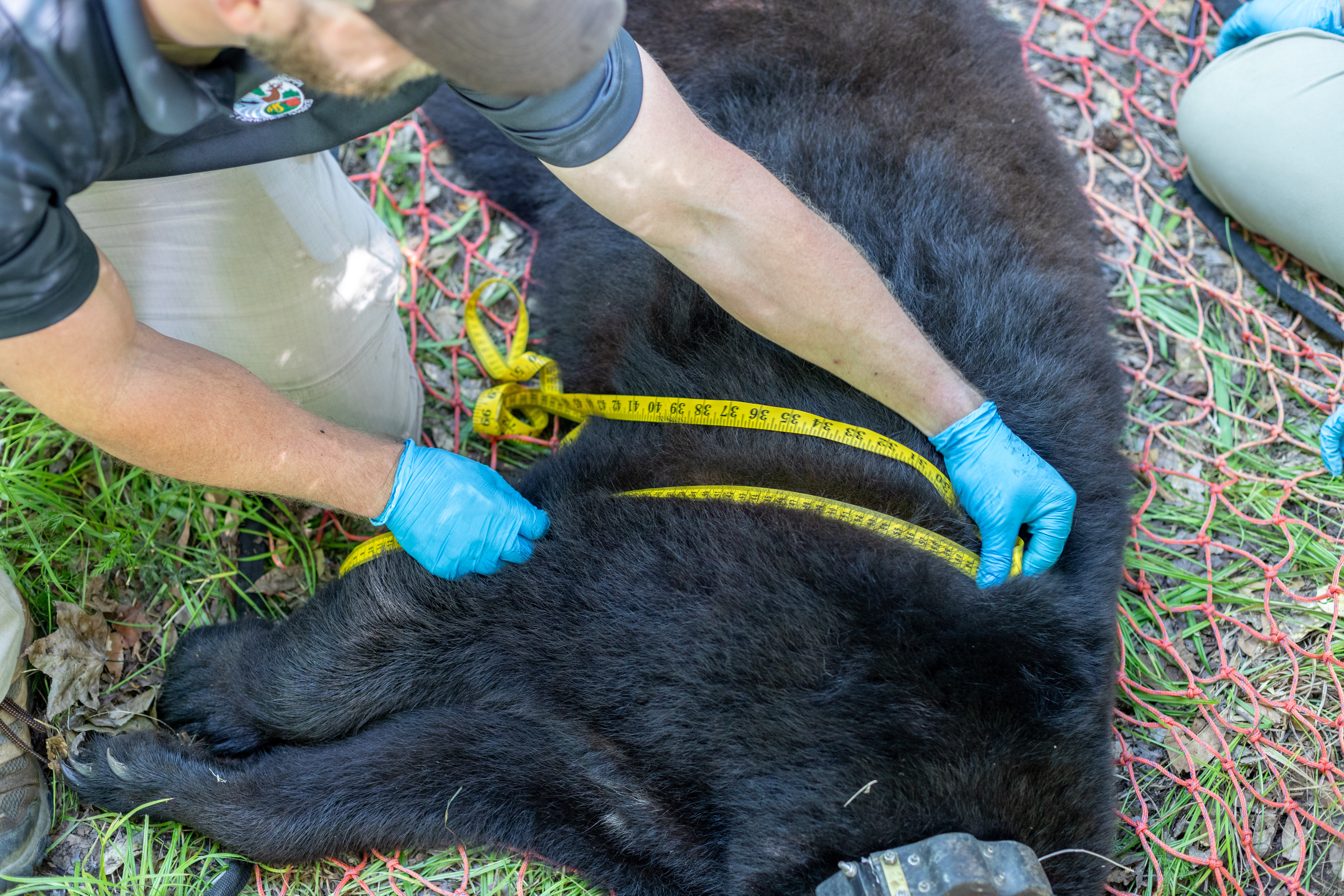

The Mississippi Department of Wildlife, Fisheries, and Parks (MDWFP) Black Bear Program is leaning into multiple research methods to continue better understanding our black bear population as well as gain insight into public perception surrounding black bears.
The most successful methods of studying black bears include trapping and collaring. MDWFP is continuing to partner with Mississippi State University (MSU) and landowners across southeast and southwest Mississippi to trap and collar bears. Since May 2023, MDWFP has trapped 30 black bears across 12 counties. The trapped bears are sedated, sampled, measured, ear-tagged, and released at the trap site. Nineteen of the 30 bears were fitted with GPS collars to monitor home range and habitat patterns, and the collared females will help in monitoring reproductive success.
Additionally, as fall approaches, MSU will continue gathering data in south Mississippi through hair snares. Hair snares are constructed to collect hair from bears they walk through the woods and brush against barbed wire. The hair is used for genetic analysis to identify individuals and establish population density estimates. Each unique research effort aids MDWFP in making informed decisions regarding the state’s bear population.
Understanding the public’s perception of black bears is helpful for shaping management decisions. Earlier this summer, MDWFP joined with MSU Human Dimensions Laboratory to conduct a statewide public survey about black bears in Mississippi. The survey is ongoing and will be used to evaluate public opinions and attitudes towards black bears in order to refine education and outreach within the state.
MDWFP encourages citizens to adopt a few simple practices that will minimize human-bear conflict from occurring, for instance never feed or approach bears and remove or secure any items around your house that may attract bears such as trash, grills/smokers, bird feeders, pet food, etc. For more information on how to prevent unwanted encounters with bears, visit MDWFP’s Living with Bears webpage.
In order to continue efforts to learn about and better manage bears in Mississippi, MDWFP and MSU are looking for properties in southeast and southwest Mississippi to trap and collar bears this year. If you regularly see bears on your property and would like to help, contact us through the MDWFP Black Bear Program website.
“We are excited to see the black bear population growing in Mississippi and appreciate the public's active response. Our work relies heavily on the cooperation of landowners across the state who allow us access to their property for research. I am proud with the direction this program is going.” said Anthony Ballard, MDWFP Bear Program Coordinator.
To learn more about MDWFP’s Black Bear Program, visit https://www.mdwfp.com/wildlife-hunting/wildlife-species-program/black-bear-program or call (601) 432-2242. Follow us on Facebook at facebook.com/mdwfp or on Twitter at www.twitter.com/MDWFPonline